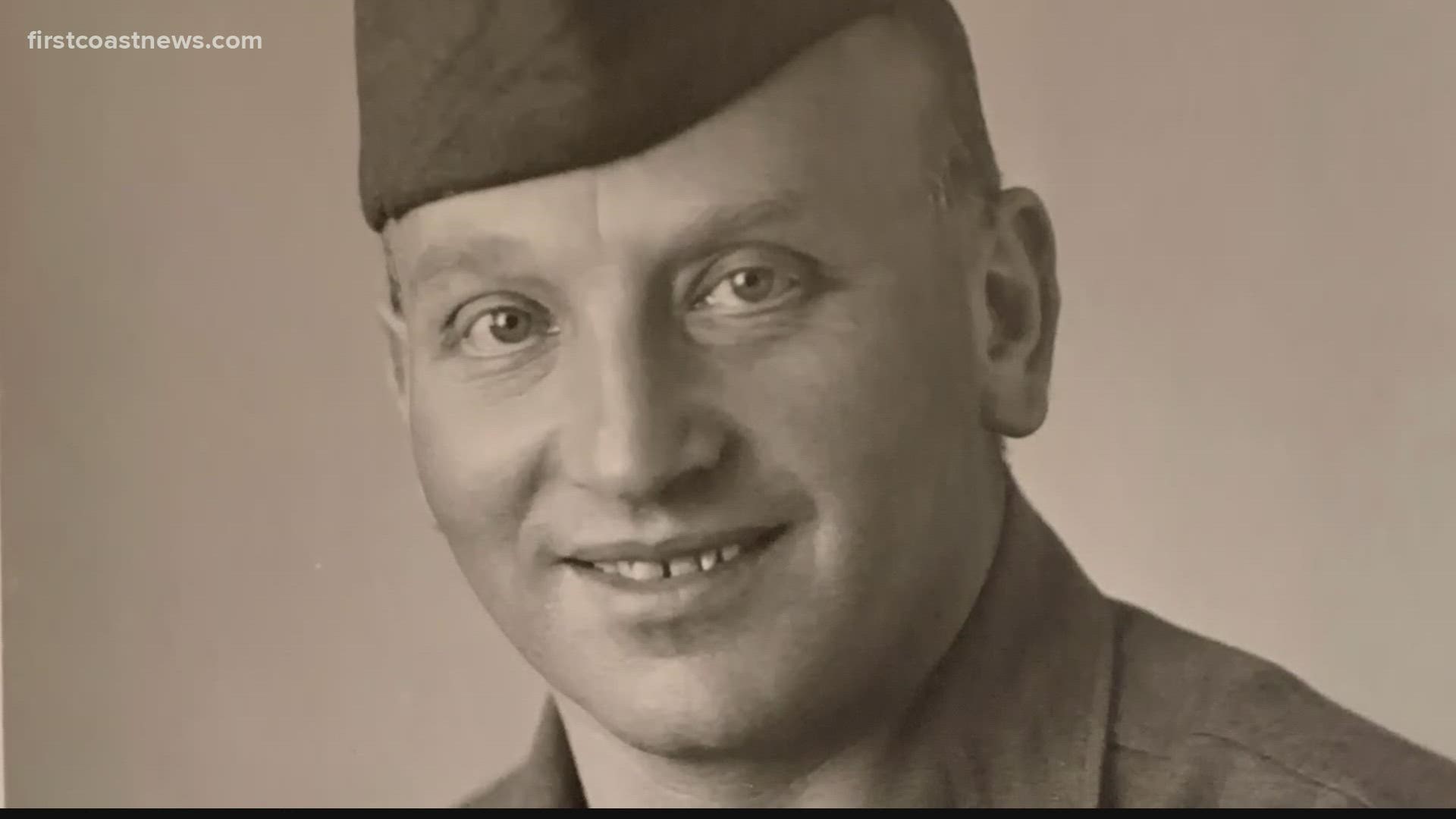JACKSONVILLE, Fla — It’s a heavy burden to remember, but the laminated pages in Jack Romberg's archives carry the weight.
“Richard Stern is my ... was my great uncle," Romberg said. “He was a hero for the German Army in World War I, he was a protester against the Nazis, and he was a hero for the American Army in World War II.”
Romberg is a retired rabbi now living in Ponte Vedra Beach and carefully preserving the life of Stern.
Stern was a German-Jewish soldier in Cologne, Germany.
“He was in the front line in a series of battles from February of 1918 almost until the end of the war," Romberg said.
Stern's bravery earned an Iron Cross, a war medal, in World War I. Then, his country turned on him.
“It was in early 1933 that the Nazis took over the government, and they decided to do things against the Jewish people," Romberg explained "because they hated the Jewish people, and they were going to do things to suppress them.”
It began with a boycott of Jewish businesses in Germany, like Stern's. Nazis would stand outside Jewish businesses to make sure Germans did not go inside.
In a historical photo, which is now in a museum in Germany, Stern is standing next to the Nazi. Stern, a veteran, is wearing his Iron Cross to show that the Nazis were turning on veterans.
Story continues below.
“Not afraid to do this," Romberg said. "He was standing up for the rights of the Jewish people.”
Years later, Stern fled to America for safety. In that same year, World War II began.
In the U.S., he gave his Iron Cross over to be melted down for war supplies, including bullets that would kill Nazis.
Stern had a fight left in him. Not even a citizen of the U.S., he joined the Army in 1942. Once again, he was a war hero.
“Uncle Richard’s company was surrounded by German machine gunners. He stood up in the line of fire and talked to them (in German) about stopping the shooting and if they didn’t surrender to the Americans they would all be killed," Romgerg said.
Because Stern spoke the same language as the Nazis, he was able to get through to them. They surrendered, despite the fact that the Americans were outnumbered.
Stern received the third highest medal from the U.S. Army. In a letter from the government, this heroic act is recalled.
“What Uncle Richard’s story teaches us is that you should not be thinking of yourself. You have to be thinking about other people and helping other people," Romberg said.
His story is history. It's catalogued and remembered.
Romberg has documented it all in a book "A Doorway to Heroism."
Stern found out several years after the war that his brother and their family were killed in Auschwitz Concentration Camp.
Jan. 27 is International Holocaust Remembrance Day, marking the day Auschwitz Concentration Camp was liberated in 1945.
Stern came back to America, forming a close connection to his great nephew Romberg, and became a business owner. He died in the 1960s.

